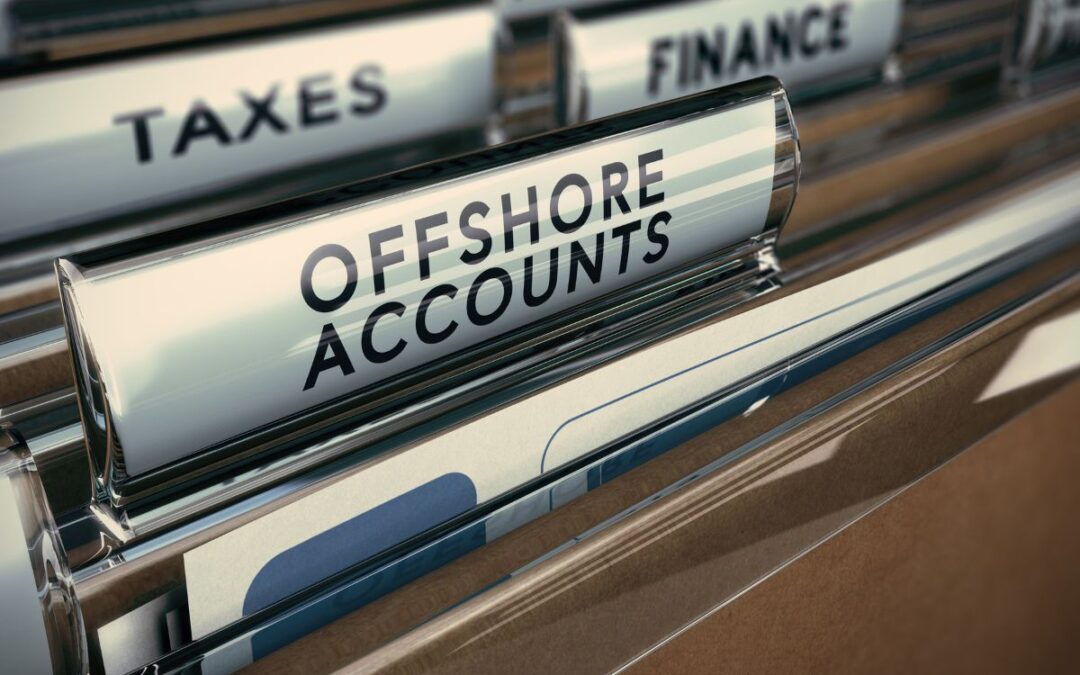Introduction
Offshore banking refers to banking activities carried out in a jurisdiction outside of the depositor’s home country. As its become easier, this practice has become increasingly popular with individuals and businesses opting to bank offshore for a variety of reasons. Offshore banking can be a positive experience for your business especially since safety and privacy can help you feel secure and assured that your money is protected.
Offshore banking is now a major part of the international financial system. Experts suggest that almost half of the world’s capital flows through offshore centres. Offshore financial centres are estimated to contain 1.2% of the world’s population and hold 26% of the world’s wealth, including 31% of the net profits of US multinationals. A group of activists says the real amount could be much higher when the international deployment of Chinese, Russian, and US capital is taken into account.
Trillions of dollars of deposits and securities are held in offshore banks, mainly by international business corporations (IBCs) and trusts. Among the offshore banks, Swiss banks hold an estimated 35% of the world’s private and institutional funds (3 trillion Swiss francs), and the Cayman Islands (over US$2 trillion in deposits) is the fifth largest banking center in the world in terms of deposits.
Banking benefits
Offshore accounts could attract a significantly wider customer base. Expats, in particular, can benefit from offshore banking.
The main advantages of an offshore account, and the reasons for the growing popularity of offshore banking, are:
Privacy
Opening an offshore bank account will ensure a higher level of privacy. Offshore banks are known for their strict privacy and confidentiality policies. They offer a level of anonymity that is not available with domestic banks. Offshore banks are required by law to maintain strict confidentiality of their client’s information, which means that their financial affairs remain private.
Tax savings
If a private company does not need physical assets to operate, it can technically be located in any part of the world where corporate taxes are business-friendly. By banking offshore, individuals and businesses can legally reduce their tax liability and keep more of their money. However, it is essential to note that tax laws vary from country to country, and it is crucial to seek professional advice to ensure compliance.
Diversification
Offshore banking can also provide diversification benefits. By holding funds in multiple currencies and jurisdictions, individuals and businesses can spread their risk and reduce exposure to any one country’s economic or political instability. Diversification can provide peace of mind and help protect against financial loss.
Higher Interest Rates
Offshore banks often offer higher interest rates than domestic banks. This is because they have access to a more extensive range of investment opportunities, which allows them to generate higher returns. By banking offshore, individuals and businesses can earn more interest on their deposits.
Asset Protection
By banking offshore, you can safeguard your assets from potential threats.. So, if someone tries to sue you for some suspicious reason, your accounts in an offshore bank are protected, allowing you to remain safe from these dubious practices. In addition, and equally important, you can use the money in these accounts to pay for various investments in different parts of the world.

Political stability
For investors and bankers living in politically unstable countries, it may make sense to move financial assets abroad to peaceful and reliable countries such as Switzerland, Germany, and Singapore. For example, a company would not want to hold all its cash in banks in a country with hyperinflation or corrupt oligarchs. In this case, offshore banking is a precautionary measure to keep their cash out of the hands of greedy politicians and away from inflationary pressures. The risk of civil war or rebel insurgency in more unstable countries is another reason for individuals and companies with large amounts of assets to turn to offshore banking.
Facilitate international trade
Many companies believe that offshore banking offers better insurance for their assets, including extensive protection and flexibility. However, another reason to consider to open an offshore bank account for your business is when you trade internationally. Businesses can take advantage of trade finance facilities, such as letter of credit and guarantees to secure their international expansion. Furthermore, some business partners may require you to bank in the same country as them to facilitate future business relationships.
Other factors to consider before opening an offshore bank account
Even if you decide to open an offshore account for your business following the several benefits that it could provide there are a few drawbacks to consider.
Funds safety
Even though most offshore banks have already taken actions to ensure the security of their client’s funds, you will probably not be able to benefit from the same amount of safety as traditional banks provide (Financial Services Compensation Scheme – FSCS – in the UK or the Deposit Guarantee Scheme in the EU). However, certain offshore banks do provide a guarantee by ensuring a 100% liquidity and deposit ratio.
Extended compliance requirements
Should you wish to open a business account abroad, you must be ready to face extended compliance requirements from most offshore banks. As stated, banks (traditional or not) are regulated bodies and must follow strict Know Your Client (KYC) and AML policies. You may have to provide a couple of bank references to support your application along with other documentation. It may involve extended delays before you can receive your bank details.
Costs
Opening an offshore account can be a bit expensive. Most offshore banks are not traditional ones and do not benefit from an extended network of banking partners (intermediary banks). Moreover, as – most of them – want to provide the same (if not better) level of services and guarantees as traditional banks, offshore banks often provide (and require) a larger liquidity ratio compared to traditional banks. Therefore, offshore banking may become more expensive than traditional banking. However, the idea that offshore banking is strictly designed for the wealthy is definitely false as you already have several options on the market that would probably suit your requirements shall you wish to pursuit this journey.
Conclusion
Offshore banking services offer a range of benefits that can be advantageous for individuals and businesses. From tax efficiency to asset protection, offshore banking can provide a level of privacy, diversification, and convenience that is not available with domestic banks. However, it is essential to seek professional advice before banking offshore to ensure compliance with local laws and regulations.
Shall you wish to discover your options available based on your current situation, do not hesitate to book a free consultation with our team now.
Disclaimer
Widelia and its affiliates do not provide tax, investment, legal or accounting advice. Material on this page has been prepared for informational purposes only, and is not intended to provide, and should not be relied on for, tax, investment, legal or accounting advice. You should consult your own tax, legal, and accounting advisors before engaging in any transaction. Please consult https://widelia.com/disclaimer/ for more information.









